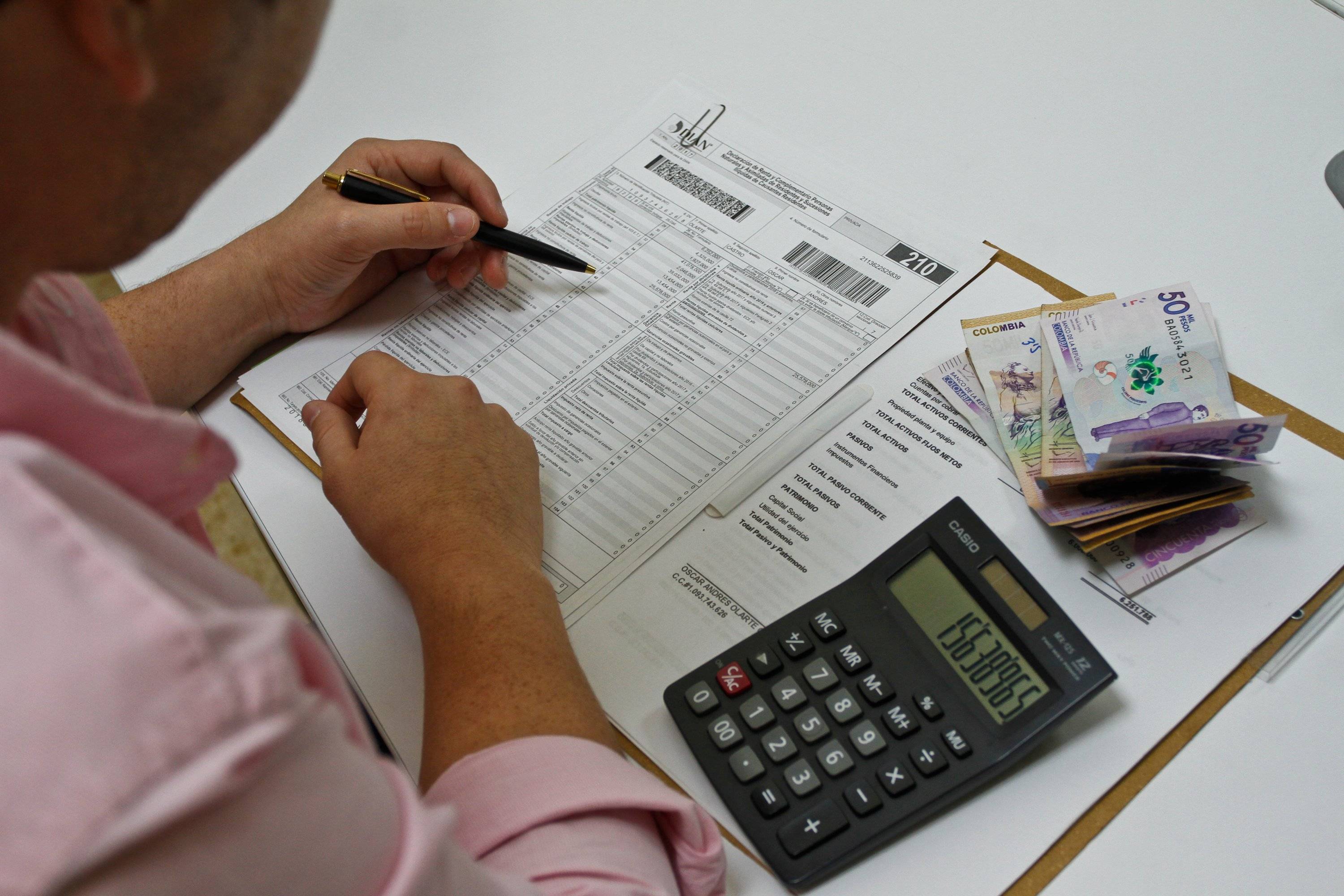This is how income tax returns affect high-income earners; filing season begins August 12.

This Tuesday, August 12, marks the first deadline for taxpayers to file their income tax returns with the National Tax and Customs Directorate (DIAN), and more than one taxpayer may be surprised to find themselves owing a larger balance than expected.
Although declaring income to the tax authority doesn't always mean paying, the latest tax reform introduced a series of changes that, for the second year, could particularly affect higher-income individuals.

Prepare your tax return ahead of time. Photo: iStock
The rule reduced the limits that taxpayers can apply to exempt income and deductions, increasing the taxable base and, therefore, the income tax on higher salaries that previously could be deducted by a larger amount.
Before the reform, a worker could have deductions and exempt income of up to 191 million pesos (5,040 Tax Value Units (UVT)); however, after the reform, these benefits cannot exceed 66.7 million pesos (1,340 UVT) for the 2024 tax year.
This means that deductions for prepaid medical care, interest on housing loans, child or dependent loans, construction savings accounts (AFC), or voluntary contributions to pension funds, among others, cannot exceed this amount.
"Tax planning opportunities have been reduced with the latest reforms, due to the limited scope for lowering the tax base. The greatest impact was last year, but this year it will also be felt by high-income earners," explained Carlos Enrique Neira, director of Global Mobility Services & Family Business at KPMG.
For some experts, one way to avoid paying a sudden increase in taxes this holiday season is to voluntarily increase the withholding tax applied each month. This is the mechanism the DIAN uses to deduct a percentage of income from some salaries in advance, which is then added to the annual tax payment. While some people prefer to save that money themselves and pay it all at once when it's due, others prefer to have a larger percentage deducted each month to avoid the shock now.

Images of the Colombian Stock Exchange. Photo: Mauricio Moreno
Lucas Solano, VP of Wealth and Financial Planning at Credicorp Capital, said there are alternatives that allow for structuring a personal financial portfolio while simultaneously obtaining benefits for tax returns. Among them, he mentioned investments in the Colombian Stock Exchange (BVC), since profits from their sale may be tax-exempt, as long as they do not exceed 3 percent of the company's total outstanding shares during the year. He also explained that foreign stocks traded through the Colombian Global Market, including companies like Apple, Nvidia, and Tesla, as well as some ETFs (investment funds), may also benefit, given that profits derived from their sale may be tax-exempt.
Additionally, for several years now, individuals have been able to deduct up to 1 percent of the value of purchases made at various retailers using a debit or credit card, or any other electronic means, and supported by an electronic invoice. For this year, Ángela González, Tax Associate Partner at EY Colombia, says the maximum deduction is 11.3 million pesos.
"For several days now, the exogenous information reporting the total value of purchases eligible for this benefit has been available. In any case, it is the taxpayer's responsibility to have the supporting information and verify that the information being declared is correct," he stated.
Will I have problems because the exogenous information arrived late? Specifically, there were alerts a week ago because the DIAN delayed publishing so-called exogenous information, which is simply information reported by third parties such as banks or notaries so that people can file their income tax returns more easily.
The KPMG expert believes that while this is helpful for taxpayers, it may not contain all the necessary information, as is the case, for example, with transactions carried out abroad. "Operations abroad are not reflected, which doesn't mean that individuals don't have to report them. They should record them to avoid penalties for inaccuracy," he explained.

Income tax return. Photo: Jaime Moreno/El Tiempo
If this happens, the taxpayer could face a penalty. The three most common situations that would expose the more than 6.7 million taxpayers required to file income tax returns this year, 400,000 of whom are new , to fines are: when people file their return after the deadline, when they file with errors, and when they simply fail to comply with their obligation.
For example, if you miss the deadline, you could face a penalty equivalent to 5 percent of the tax owed, which for this year would amount to at least 498,000 pesos. Therefore, people should check the tax calendar and not miss the dates corresponding to the last two digits of the NIT (Tax Identification Number), which for Colombians is the same as the ID number. However, for foreigners, it is a different number.
Are there any changes this year? Taxpayers should be aware of the updated tax limits that change each year. For 2025, those with gross income of more than 65.8 million pesos last year, or 5.4 million pesos per month , are required to file. Additionally, those with assets of more than 211 million pesos or who made purchases or deposits of more than 65.8 million pesos also apply.
People who transfer money through digital wallets like Nequi, Daviplata, or Dale! should know that while deposits as such are not subject to reporting on their tax returns, the balances held at the end of the year must be reported as part of their assets.
Additionally, the income generated by the wallets throughout the year is income that must be declared and is subject to tax. In turn, to the extent that the money deposited in the digital wallet comes from the taxpayer's income, it must also be declared.

DIAN Photo:
Additionally, the EY expert explains that there are also additional clarifications regarding the deduction for dependents. For employees, the same dependent can qualify for the benefit through both the "traditional" deduction and the "new" deduction that was first reflected in tax returns filed the previous year.
eltiempo





